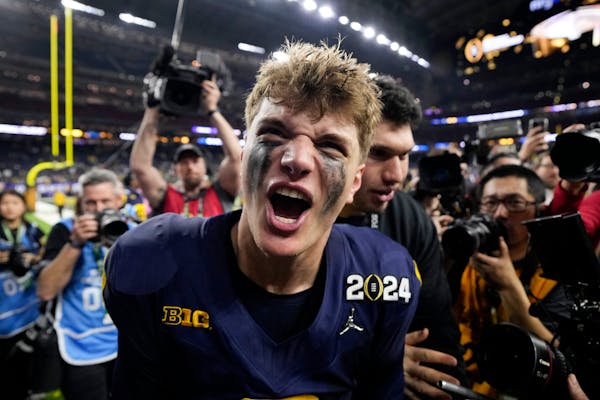One of the beleaguered banking industry's brighter stars focused a group of Minnesota business owners Tuesday on a Time magazine article. Phrases included an "almost comatose" economic recovery; a "debt hangover," and a "real estate recession."
The article was from September 1992, shortly before the great bull market of the 1990s took off.
Richard Davis, CEO of U.S. Bancorp, made the point that businesses have felt lousy about the future before.
"It's raining out there," Davis told the annual meeting of the Minnesota Chamber of Commerce. "Get an umbrella. But also buy a swimsuit. It will get sunny."
Davis noted that the best economic forecasters are projecting a "muted recovery" that could take a few years before significantly lowering employment.
"Use these negative forecasts to prepare, rather than to be upset," said Davis, who cautioned that lack of confidence and fear can become self-fulfilling prophecies.
Recent industry surveys of business owners and executives indicate that they are positive on the long-term future of their businesses. He said polls of U.S. Bank's commercial customers also indicate optimism.
Davis encouraged chamber members to focus on their own operations, invest in their employees and focus on public policies that provide stability and certainty for business planning, a growth-oriented environment and a skilled labor force.
"That's what's most important in the next five years."
Earlier in the day, chamber members learned about a poll of 350 Minnesota business owners who indicated they were disappointed by the 2011 end-of-session war between the Republican-dominated Legislature and DFL Gov. Mark Dayton.
Todd Rapp, president of Himle Horner, who interprets the poll, said businesses want to see more bipartisan cooperation, balanced tax reform, evidence of common-sense regulatory streamlining, and policies business can bank on for a few years in their planning.
Outside the meeting in downtown St. Paul, as many as 100 people, including clergy, union workers and community volunteers, rallied to demand that large banks and corporations pay "their fair share" of taxes, create more jobs with record hoards of cash on their balance sheets and find alternatives to home foreclosures.
"Big banks like Wells Fargo and U.S. Bank need to pay their fair share to contribute to a future of shared prosperity for all and take positive steps to fix the foreclosure crisis," said the Rev. Grant Stevensen, a Lutheran pastor and president of ISAIAH, a faith-based group.
Neal St. Anthony • 612-673-7144
